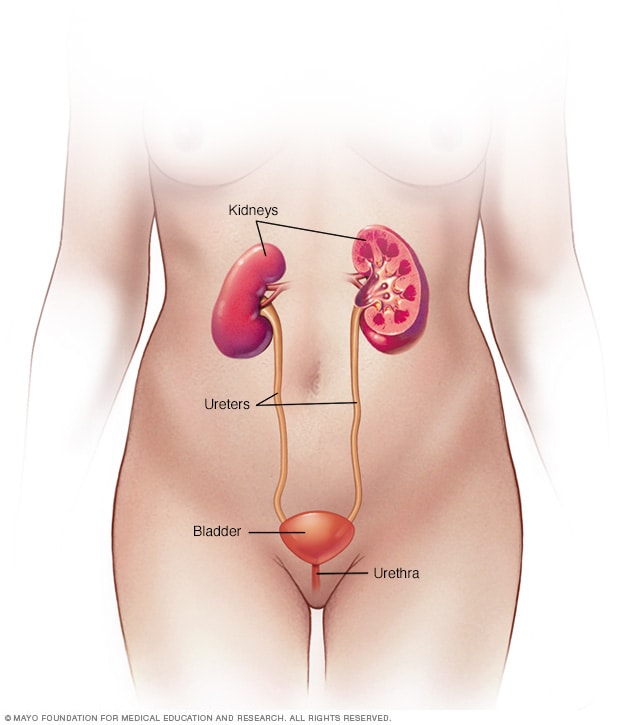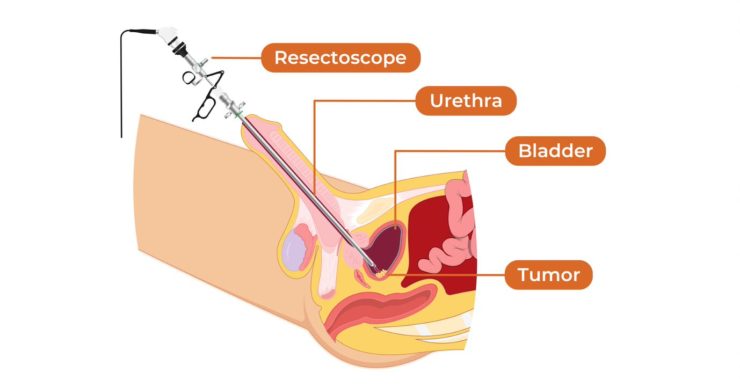In this article we will describe 10 bladder cancer facts.
Bladder cancer is one of the most common types of cancer worldwide. It primarily affects older adults – about 90% of people with bladder cancer are older than 55 years. The average age of diagnosis is 70-75 years.
Men are 3 times more likely to have bladder cancer than women. The chance men will develop bladder cancer during their lifetime is about 1 in 30 (this compares to 1 in 8 men who get prostate cancer). For women, the chance is about 1 in 90.
The bladder is an organ in the lower abdomen that stores urine before it is expelled from the body. Bladder cancer occurs when cells in the lining of the bladder grow uncontrollably. It is a small organ with a capacity of 300 mls – a coke can.

Smoking is the most significant risk factor for bladder cancer, accounting for a large percentage of cases. Other risk factors include exposure to certain chemicals (such as those in certain occupations), chronic bladder inflammation, and certain genetic factors.
One of the most common symptoms of bladder cancer is haematuria, which means blood in the urine. Haematuria may be visible (‘macroscopic haematuria’) or detected only under a microscope (‘microscopic haematuria’).
There are different types of bladder cancer, including transitional cell carcinoma (the most common), squamous cell carcinoma, and adenocarcinoma. The treatment approach may vary depending on the type.
Bladder cancer is staged and graded to determine the extent of its spread and how aggressive it is. The stage indicates whether the cancer is localised or has spread to nearby tissues or other parts of the body.
Treatment for bladder cancer depends on factors such as the stage, grade, and the patient’s overall health. The most common treatment is called ‘transurethral resection of bladder tumour (TURBT)’.
This is a procedure done by a urologist (hospital urinary tract surgeon), without cutting through the tummy. It is used to diagnose bladder cancer, and remove any cancerous tissue from the bladder.
It involves using a ‘telescope’ from the inside (i.e. without opening up the tummy), as part of a procedure called a ‘cystoscopy’.

Transurethral resection of bladder tumour (TURBT)
Though surgery sometimes involves removing the whole bladder, and making a new bladder (that opens up into a bag on the skin) using some bowel (the ileum). This is called an ‘ileal conduit’.
Other treatment options include chemotherapy, radiation therapy, immunotherapy, and intravesical therapy (where medication is inserted directly into the bladder).
Bladder cancer has a tendency to recur, even after successful treatment. Regular follow-up appointments and cystoscopies are crucial to detect and manage any recurrences.
Survival rates for bladder cancer vary based on the stage at diagnosis. The 5-year survival rate for localised bladder cancer is around 70-90%, while the rate for more advanced stages can be lower.
Quitting smoking is one of the most important steps in preventing bladder cancer. Additionally, maintaining a healthy diet, and minimising exposure to certain chemicals can help reduce the risk.
It is important to see a urologist soon, if you suspect you may have bladder cancer.
We have described 10 bladder cancer facts. We hope it has been helpful.
This article has been reviewed by Mr Tony Blacker, Consultant Urologist, UHCW Coventry.